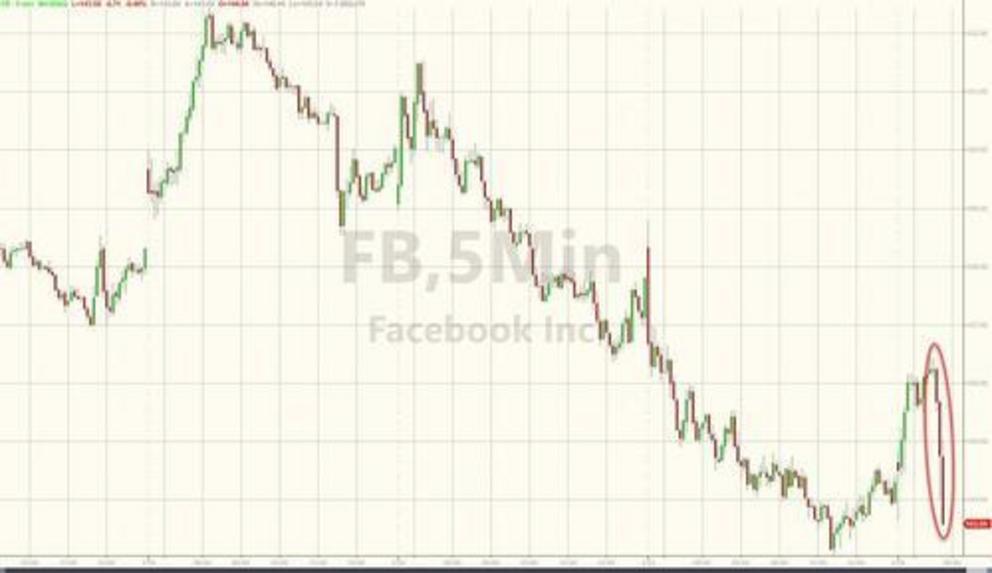Facebook slides after report claims 50% of its users are fake
As bad as things have been for Facebook since the Cambridge Analytica scandal broke one year ago, one team of researchers, led by a former peer of Mark Zuckerberg at Harvard who created one of the original Facebook prototypes, thinks the reality of the company's circumstances is even more dire than investors realize.
In a report published Thursday by PlainSite, an independent research shop led by Aaron Greenspan, analysts calculated that Facebook CEO Mark Zuckerberg has been regularly lying to investors and the public about the company's user metrics, and that the company could be overestimating the number of users by as much as 50%.
The team detailed their findings in a 70-page report published on their website.
Facebook has been lying to the public about the scale of its problem with fake accounts, which likely exceed 50% of its network. Its official metrics—many of which it has stopped reporting quarterly—are self-contradictory and even farcical. The company has lost control of its own product.
Ultimately, this is just the latest sign that Facebook - formerly one of the world's most successful companies - is doomed to go the way of CompuServe and AOL.
PlainSite is a project launched by the Think Computer Corporation and Think Computer Foundation which aims to make "data accessible to the public free of charge” and "lets ordinary citizens impact the law- making process," according to Bloomberg. Aaron Greenspan recently told his story about how he fit into the history of Facebook's founding at Harvard on a podcast.
Facebook's fraudulent numbers hurt its customers (advertisers) by overstating the effectiveness of Facebook's product, the company said.
- Fake accounts affect Facebook at its core in numerous ways:
- Its customers purchase advertising on Facebook based on the fact that it can supposedly target advertisements at more than 2 billion real human beings. To the extent that users aren’t real, companies are throwing their money down the drain.
- Fake accounts click on advertising at random, or “like” pages, to throw off antifraud algorithms. Fake accounts look real if they do not follow a clear pattern. This kind of activity defrauds advertisers, but rewards Facebook with revenue.
- Fake accounts often defraud other users on Facebook, through scams, fake news, extortion, and other forms of deception. Often, they can involve governments
FB shares reversed earlier gains after the report started making the rounds; shares were down 1.2% on the day in recent trade.
Here is an artist's impression of what the "other half" of Facebook users look like.
Read the full report at source link below.

